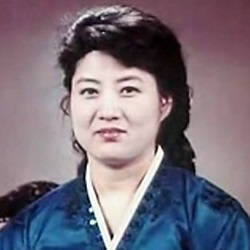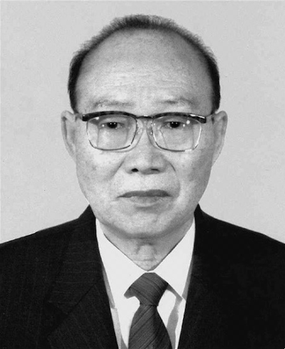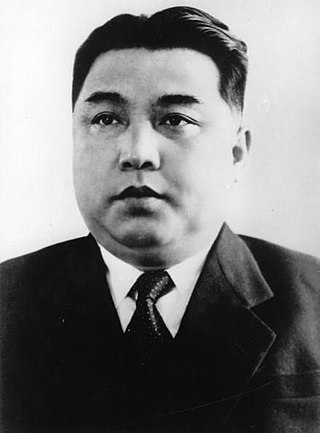External links
- Yang Sok-il at IMDb
- Profile at J'Lit Books from Japan (in English)
- Profile,Nikkei Torendi. (in Japanese)
| Yang Sok-il | |
| Hangul | 양석일 |
|---|---|
| Hanja | |
| Revised Romanization | Yang Seok-il |
| McCune–Reischauer | Yang Sŏgil |
| Japanese name: Yanagawa Masao ( 梁 川 正 雄 ) | |
Yang Sok-il (or Yang Sokil,Yang Sogil,Yang Seok-il,born 13 August 1936) is a writer in Japanese of Korean nationality. He was born in Osaka.
Yang first supported himself via various odd jobs,an experience that led to books based on the experience of taxi driving published in the 1980s and filmed as All Under the Moon (月はどっちに出ている,Tsuki wa dotchi ni dete iru Yōichi Sai). A large number of books followed.
The December 2000 issue of Yurīka (ユリイカ) / Eureka is devoted to Yang. [1]
Yang's semi-autobiographical novel,Chi to Hone (Blood and Bones),was adapted as a theatrical film,directed by Yoichi Sai,starring Takeshi Kitano as Kim Shun-Pei,Kyōka Suzuki as Kim's wife,Joe Odagiri as son-in-law and Hirofumi Arai as eldest son and narrator. The film opened in Japan on 6 November 2004. An English version of the book translated by Adhy Kim was also published in 2022.

Ko Yong-hui, also spelled Ko Young-hee, was the consort of North Korean supreme leader Kim Jong Il and the mother of his successor, Kim Jong Un. Within North Korea, she is only referred to by titles, such as "The Respected Mother who is the Most Faithful and Loyal 'Subject' to the Dear Leader Comrade Supreme Commander", "The Mother of Pyongyang", and "The Mother of Great Songun Korea".

Blood and Bones is a Japanese film, directed by Yōichi Sai and starring Takeshi Kitano. It is based on the semi-autobiographical novel Chi to Hone by Zainichi Korean author Yan Sogiru.
Yōichi Sai was a Japanese film director. He was the president of the Directors Guild of Japan.

Hwang Sok-yong is a South Korean novelist.

Pak Song-chol or Park Sung-chul was a North Korean politician who served as Premier of North Korea from 1976 to 1977. He succeeded Kim Il. He also served as foreign minister from 1959 to 1970.

Jo Myong-rok was a North Korean military officer who held the military rank Chasu. In 1998, he was appointed first vice-chairman of the National Defence Commission of North Korea, Director of the Korean People's Army General Political Bureau. Previously, he was the commander of the air defence forces.
Eiki Matayoshi is a contemporary Japanese writer. His novels are always set in the Okinawa archipelago, and he is considered one of the most important contemporary novelists from Okinawa.
O Jin-u was a North Korean general and politician. He served with Kim Il Sung's partisan unit and eventually rose through the ranks of the North Korean Army. He distinguished himself during the Korean War and was a trusted adviser of Kim Il Sung until his death, also being his chief guard in 1945. Thanks to his relationship with Kim Il Sung, O Jin-u was able to enjoy wealth and fame, this lasted even under Kim Jong Il. He was the Minister of Armed Forces from May 1976 until his death in February 1995. O was considered the third-most powerful person in North Korea, after Kim Il Sung and his son Kim Jong Il, therefore making him the most powerful person that possessed no blood relations to the Kim family. He was considered by many as a hardliner and advocated strongly for North Korea's nuclear program.

Parliamentary elections were held in North Korea on 25 August 1948 to elect the members of the 1st Supreme People's Assembly. Organised by the People's Committee of North Korea, the elections saw 572 deputies elected, of which 212 were from North Korea and 360 from South Korea.

Parliamentary elections were held in North Korea on 27 August 1957 to elect members of the 2nd Supreme People's Assembly. Voters were presented with a single list from the Democratic Front for the Reunification of the Fatherland, dominated by the Workers' Party of Korea.

Parliamentary elections were held in North Korea on 8 October 1962 to elect the members of the 3rd Supreme People's Assembly. Only one candidate was presented in each constituency, all of which were selected by the Workers' Party of Korea, although some ran under the banner of other parties or state organisations to give the illusion of democracy. Voter turnout was reported to be 100%, with all reportedly voting in favour of the candidates presented.

Soo is a 2007 South Korean neo-noir action thriller film directed by Yoichi Sai.
All Under the Moon is a 1993 Japanese film directed by Yoichi Sai and starring Gorō Kishitani and Ruby Moreno.

Kim Il Sung died of a sudden heart attack on the early morning of 8 July 1994 at age 82. North Korea's government did not report the death for more than 34 hours after it occurred. An official mourning period was declared from 8–17 July, during which the national flag was flown at half mast throughout the country, and all forms of amusement and dancing were prohibited.

Kim Kuk-thae was an elder apparatchik of the Workers' Party of Korea, the ruling party in North Korea.
The Zainichicinema refers to the transnational film industry of Japan, South and North Korea. With the main theme on the struggles or experiences faced by the resident Korean community or individuals in Japan, the Zainichi cinema is characterized by a wide range of film genres, which encompass melodramas to Yakuza films.

The Kapsan Faction Incident (Korean: 갑산파) was an unsuccessful attempt to undermine the power of Kim Il Sung, the leader of North Korea, around the year 1967. The "Kapsan faction" was a group of veterans of the anti-Japanese struggle of the 1930s and 1940s that was initially close to Kim Il Sung. In the wake of the 2nd Conference of the Workers' Party of Korea (WPK) in 1966, the faction sought to introduce economic reforms, challenge Kim Il-sung's cult of personality, and appoint its ringleader Pak Kum-chol as his successor.

Parliamentary elections were held in North Korea on 10 March 2019 to elect the members of the 14th Supreme People's Assembly. The elections were announced on 6 January 2019. With only one candidate on the ballot in each constituency, outside observers described it as a show election. 687 candidates for the DPRK deputies to the SPA were elected. Kim Jong Un did not stand for election, marking the first time that a North Korean leader did not participate as a candidate.
The 3rd Conference of the Workers' Party of Korea was held in Pyongyang on September 28, 2010. The meeting elected the highest authority of the Workers' Party of Korea, and revised the party charter. North Korean leader Kim Jong Il also attended the meeting. A plenary meeting of the Central Auditing Committee of the Workers' Party of Korea and the September 2010 plenary meeting of the Central Committee of the Workers' Party of Korea were held earlier on the same day.